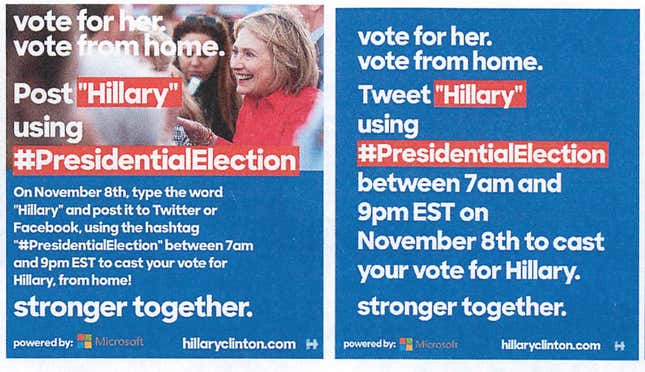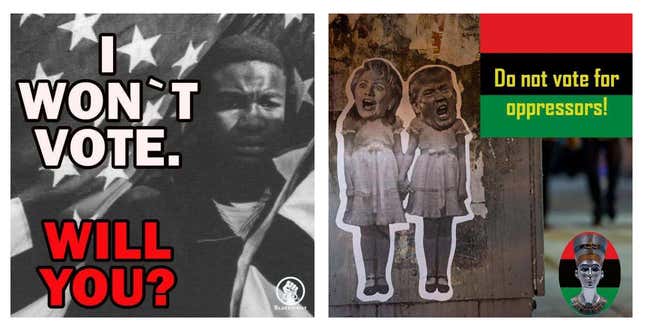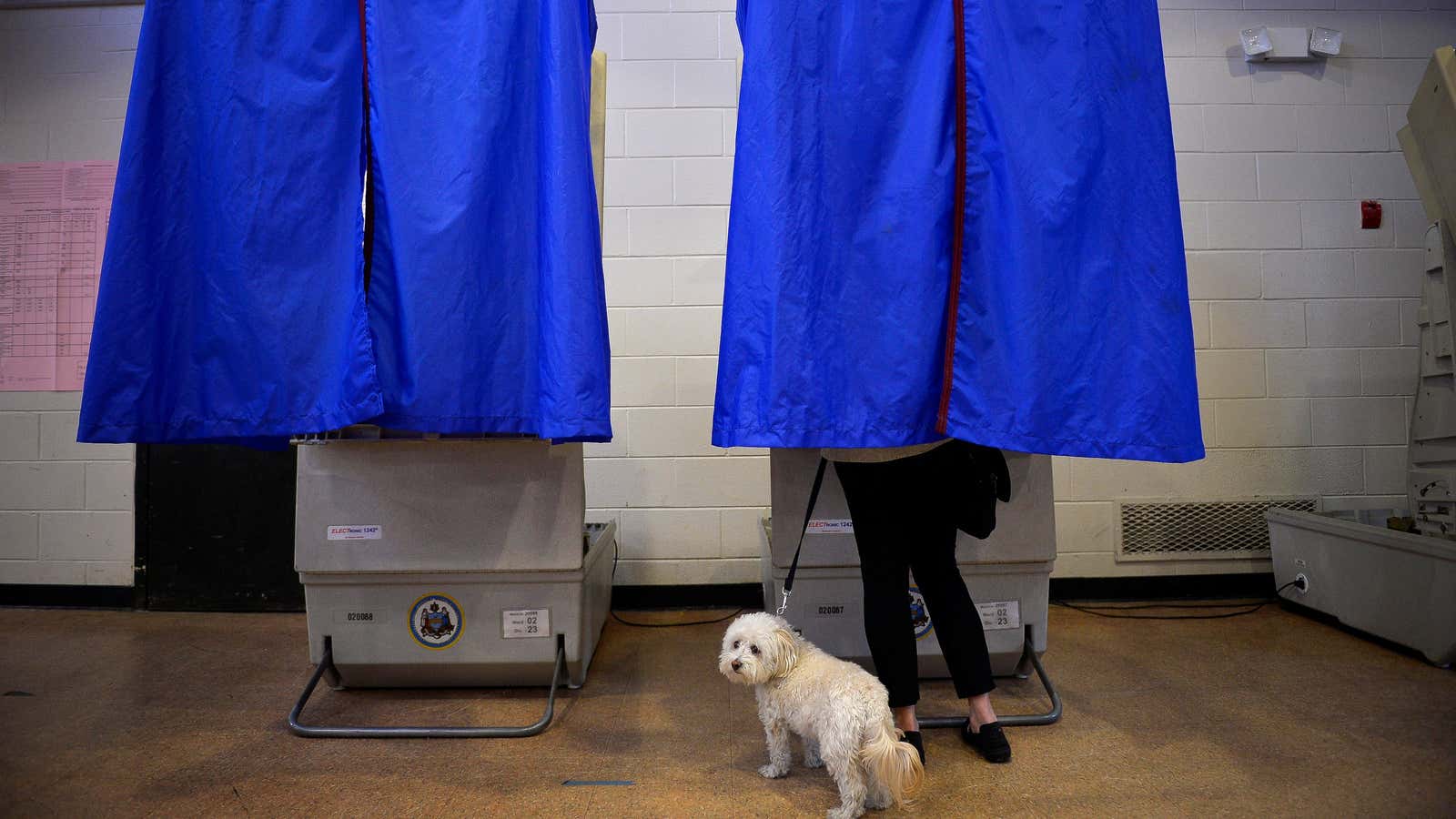November 5th is Election Day in the United States, with voters heading to the polls for gubernatorial elections in Kentucky and Mississippi, legislative elections in Mississippi, New Jersey, and Virginia, and numerous local races. If recent elections are any indication, Americans should be wary of information about voting that they see online, since there might be actors trying to inappropriately influence the electoral process.
The investigations team at Quartz is dedicated to tracking any attempts at online disinformation by domestic or foreign groups, which could be using smaller elections as “dry runs” for the big one: the US presidential election in 2020. We’re asking readers to send us voting-related Facebook posts, Instagrams, Tweets, YouTube videos, TikTok clips, Reddit threads, memes, and online ads of any sort that look sketchy—especially any attempts that discourage people from going to the polls, or efforts to claim that voting is done in any other way than outlined by state boards of elections.
Here are some pointers for how to identify them, largely based on examples from past election-meddling campaigns.
- Does the content falsely tell voters to vote by text or tweet? There are no places in the US where you can vote by text or tweet.


- Does the content question the voting technology? The tweet here is false.
- Does the ad or post encourage voters to stay home on Election Day?

- Does the content reference violence at the polls?
Per Wired, one post shared in a Facebook group during the 2018 midterm elections falsely declared: “Black Panthers, a radicalized-racist militant group, are armed with assult [sic] weapons roaming the streets and neighborhoods as well as the voting polls in Georgia to intimidate and ‘persuade’ Voters to vote for the far-left democrat candidate, Stacey Abrams for Governor.” (The post has since been deleted.)
- Does the content give the wrong date for Election Day?
It’s Nov. 5. During previous elections Twitter removed tweets with the wrong date.
- Does the content discourage voting by people in a specific group?

- Does the content come from the website of a local outlet that did not exist before?
The Lansing State Journal reported that this fall, a private company launched dozens of new online publications in Michigan which at first glance look like the pages of local newspapers, but actually have a conservative bent, blurring the line between advocacy and journalism.
If you see posts or ads like this, please send them to us
Take a screenshot and send it using any of the methods below. We’ll investigate, and if we use your tip, we’ll give you credit (with your permission).
Email (insecure): investigations@qz.com
Signal (secure): +1 929 202 9229
Secure Drop (secure & anonymous): qz.com/tips
